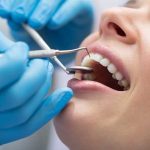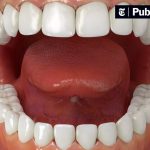Puppy Teeth 101: Understanding the Process of Losing Baby Teeth in Dogs
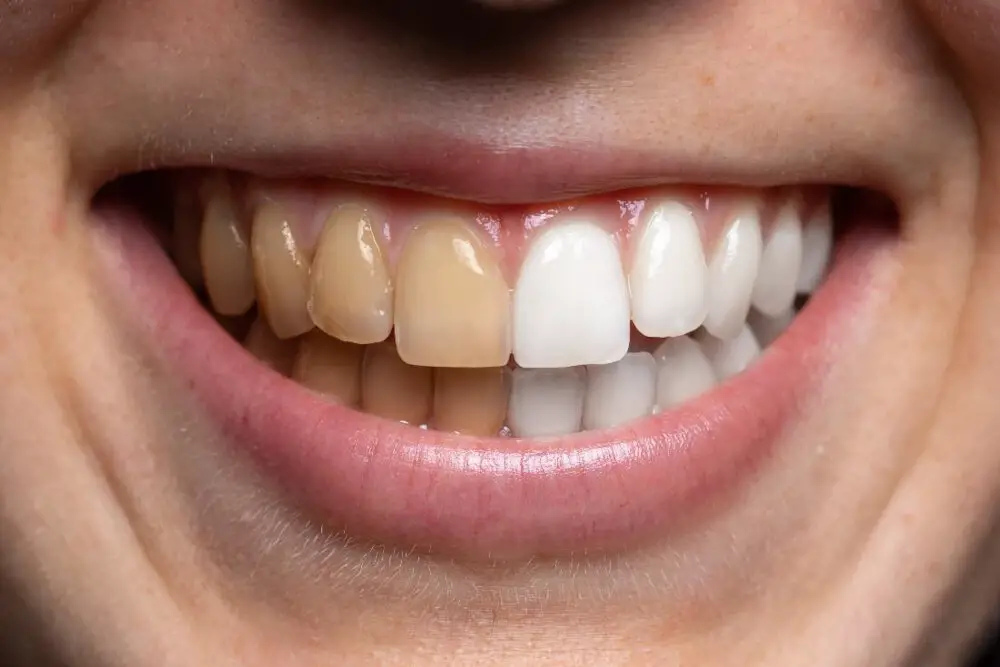
Welcoming a new puppy into your home can be an exciting experience. Watching them grow and develop is a joy for any pet owner. One of the many stages of a puppy’s growth is the process of losing their baby teeth. This can be a confusing time for pet owners who may not be familiar with the process. Understanding what to expect can help you ensure your puppy’s health and comfort during this important stage. Puppies are born without teeth, but they begin to develop their first set of baby teeth, also known as deciduous teeth, at around two to four weeks of age. These teeth are much smaller and softer than their adult teeth, making them easier for puppies to nurse and eat with. As the puppy grows and begins to eat solid food, their baby teeth become more important. However, around the age of three to six months, puppies begin to lose their baby teeth and grow in their permanent adult teeth. This process is essential for healthy oral development and can be a fascinating experience for pet owners to watch.
Understanding puppy teeth is crucial for any dog owner, as it plays a significant role in providing proper dental care to their furry friend. Puppies go through a natural process of losing baby teeth, which can be a challenging and sometimes painful experience for them. As a responsible dog owner, it is essential to ensure that your puppy’s teeth are healthy and strong, which can prevent future dental problems. By understanding the process of losing baby teeth in dogs, pet owners can monitor their puppy’s dental health and take necessary steps to maintain good oral hygiene. Regular brushing, providing chew toys, and scheduling regular veterinary check-ups are some of the ways to keep your puppy’s teeth healthy and strong. Proper dental care during puppyhood can also promote good dental health throughout their lifetime.
The timeline of puppy teeth development and loss is an essential aspect of a dog’s growth process. Puppies are born without teeth, but their deciduous teeth, also known as baby teeth, will start to emerge within the first few weeks. By six to eight weeks, a puppy will have a full set of 28 baby teeth. As the puppy grows, these teeth will start to loosen and fall out, with the permanent teeth replacing them. This process usually starts at around three months, with the incisors being the first to go, followed by the canine teeth and premolars. By seven months, most puppies will have all of their permanent teeth. It is important to monitor your puppy’s teeth during this process and provide proper dental care to ensure healthy teeth and gums for a lifetime.
Baby Teeth Basics

Baby teeth, also known as deciduous teeth, are temporary teeth that grow in puppies and are eventually replaced by permanent teeth. Puppies typically have 28 baby teeth that begin to erupt at around 3 to 4 weeks of age. These teeth are important for puppies to learn how to chew and eat solid food, as well as for the development of their jaw and facial structure. It is important to take care of a puppy’s baby teeth by providing them with appropriate chew toys and regular dental checkups, as poor dental hygiene can lead to dental problems and even infections. As puppies grow and their adult teeth begin to come in, their baby teeth will start to fall out. This process usually occurs between 4 to 6 months of age, but can vary slightly depending on the breed. During this time, it is common for puppies to experience some discomfort, as their teeth become loose and eventually fall out. It is important to monitor your puppy during this time and provide them with appropriate chew toys to help alleviate any discomfort. It is also important to note that not all baby teeth may fall out on their own, and in some cases, a veterinarian may need to remove any remaining baby teeth to prevent dental issues.
Understanding the types of baby teeth in dogs is crucial for pet owners to ensure that their puppies are developing properly. Dogs have a total of 28 deciduous or baby teeth, which fall out and are replaced by 42 permanent teeth. The baby teeth can be categorized into four types: incisors, canines, premolars, and molars. Incisors are the small teeth located in the front of the mouth, used for biting and grooming. Canines are the long, sharp teeth located on either side of the incisors, used for tearing and gripping prey. Premolars are located behind the canines and are used for grinding and crushing food. Molars are the largest teeth located at the back of the mouth, used for grinding and chewing. Identifying and monitoring the loss of baby teeth is an essential part of a puppy’s dental development.
Puppies, like human babies, go through a process of losing their baby teeth as they grow. Unlike humans, however, puppies have a shorter teething period, usually between 3 to 6 months of age. During this time, they will have a total of 28 baby teeth, which will eventually be replaced by their adult teeth. The baby teeth include 12 incisors, 4 canines, and 12 premolars, and are much smaller and sharper than adult teeth. It’s important to keep an eye on your puppy’s teething process, as they may experience discomfort and might chew on inappropriate things to relieve it. Providing appropriate chew toys and regularly checking their teeth can help prevent any issues.
As a puppy grows, it goes through several stages of development, including the formation of baby teeth, also known as deciduous teeth. Puppies begin to get their baby teeth at around 2 to 4 weeks of age, and by the time they are 6 to 8 weeks old, they should have a full set of 28 deciduous teeth. These temporary teeth are small, sharp and designed to help puppies eat and learn to bite and chew. However, as puppies continue to develop, their baby teeth begin to fall out, making way for their adult teeth to come in. This process typically begins around 3 to 4 months of age and can continue until the puppy is about 6 to 8 months old.
The Process of Losing Baby Teeth
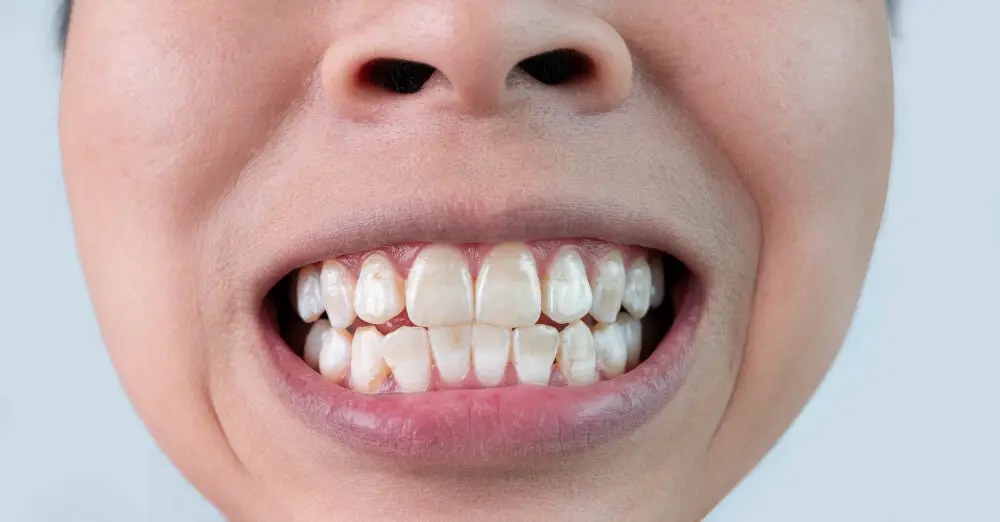
Losing baby teeth is a natural process that occurs in both humans and animals, including dogs. In puppies, this process begins around 3 to 4 months of age and can continue until they are around 6 months old. During this time, the puppy’s baby teeth, also known as deciduous teeth, start to loosen and fall out, making way for their permanent teeth to come in. It is important to note that the timing of this process can vary from one puppy to another, and some may lose their teeth faster or slower than others. The process of losing baby teeth in puppies is similar to that of humans, as their teeth also have roots that hold them in place. The roots of the baby teeth start to dissolve, causing the teeth to become loose and eventually fall out. This can cause some discomfort for the puppy, and they may experience pain or soreness in their mouth. To help alleviate this discomfort, puppies may chew on toys or other objects to help loosen their teeth. As the baby teeth fall out, the permanent teeth begin to emerge, and the puppy’s adult teeth start to take shape. Overall, the process of losing baby teeth is a normal and natural part of a puppy’s development, and with proper care and attention, they will have a healthy and strong set of teeth for years to come.
As puppies grow, they go through a process of losing their baby teeth and developing adult teeth. This can be a painful and uncomfortable experience for them, and it’s important for owners to be aware of the signs that their puppy is losing teeth. One of the most obvious signs is the appearance of gaps in their mouth where teeth used to be. You may also notice that your puppy is drooling more than usual, or that they seem to be chewing on everything in sight. They may be hesitant to eat or drink, or they may be more irritable than usual. If you notice any of these signs, it’s important to provide your puppy with plenty of soft toys and treats to chew on, and to consult with your veterinarian if you have any concerns.
During the first few months of a puppy’s life, they begin to develop a set of baby teeth, also known as deciduous teeth. These teeth are not permanent and will eventually fall out to make way for their adult teeth. The process of losing baby teeth, also known as teething, can start as early as three months old and can last until the puppy is about six months old. The puppy may experience discomfort during this time and may chew on objects to alleviate the pain. It’s important to provide your puppy with appropriate chew toys to help them through this process and to ensure that they are getting proper dental care as they transition to their permanent teeth.
After a puppy loses a tooth, it is normal for them to experience some discomfort and bleeding in their mouth. However, this should only last for a few days before the gum heals and a new tooth starts to emerge. During this process, it is important to monitor your puppy’s chewing habits and provide them with appropriate toys to satisfy their urge to chew. As they continue to lose baby teeth and their adult teeth begin to come in, it is important to maintain good dental hygiene habits such as brushing their teeth regularly and providing them with dental chews or treats to keep their teeth healthy and strong. Understanding the process of losing baby teeth in dogs can help pet owners provide the best care for their furry friends during this important stage of their development.
Caring for Your Puppy’s Teeth
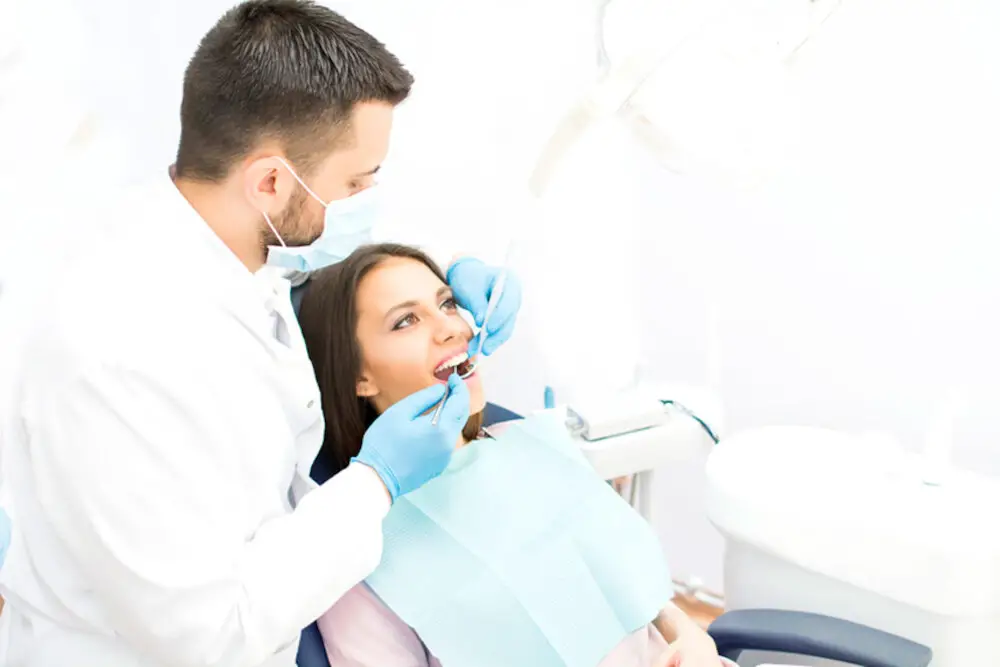
Caring for your puppy’s teeth is crucial to their overall health and wellbeing. Just like humans, dogs need proper dental care to prevent oral diseases, bad breath, and tooth loss. As a responsible pet owner, it’s your responsibility to take care of your furry friend’s teeth from the moment they arrive at your home. Start by brushing their teeth regularly with a soft-bristled toothbrush and dog-friendly toothpaste. This will remove plaque and tartar buildup, which can lead to gum disease and tooth decay. Additionally, providing your puppy with chew toys and bones can also help keep their teeth clean and healthy. Chew toys and bones help remove plaque by stimulating saliva production and scraping away tartar. However, it’s important to choose the right types of chew toys and bones as some can be too hard or small and may cause damage to your puppy’s teeth. Consult with your veterinarian to determine which chew toys and bones are best for your puppy’s specific needs. By proactively caring for your puppy’s teeth, you can help prevent oral health problems and ensure they have a happy and healthy life. In conclusion, caring for your puppy’s teeth is an essential part of their overall health and wellbeing. By implementing a regular dental care routine and providing appropriate chew toys and bones, you can help prevent oral diseases and tooth loss. Remember to consult with your veterinarian for advice on the best dental care practices and products for your furry friend. With proper dental care, your puppy can enjoy a lifetime of healthy teeth and a happy smile.
Dental care for puppies is crucial as it helps in maintaining their overall health and well-being. Puppies, just like humans, go through the process of losing their baby teeth, and it is essential to take care of their teeth and gums during this time. Proper dental care can prevent the buildup of plaque and tartar, which can cause gum disease and tooth decay. Regular brushing and dental check-ups can also help detect any potential dental issues early on, preventing them from becoming more severe. A healthy set of teeth is essential for a puppy’s ability to eat, play, and socialize, making dental care an integral part of their overall care.
Caring for your puppy’s teeth is crucial for their overall health and well-being. To ensure healthy teeth and gums, start by brushing your pup’s teeth regularly with a soft-bristled brush and toothpaste designed for dogs. You can also provide them with dental chews and toys that help clean their teeth and massage their gums. It’s important to monitor your puppy’s diet and avoid giving them sugary or starchy foods that can contribute to tooth decay. Regular veterinary check-ups are also essential to catch any dental issues early on. By taking these steps, you can help your puppy maintain healthy teeth and a happy smile for years to come.
It is crucial to take your puppy to the vet for dental care when they start to lose their baby teeth. This process usually occurs at around 3-6 months of age and can cause discomfort and pain for your furry friend. A vet can help ensure that your puppy’s teeth are coming in correctly and identify any potential issues such as retained baby teeth or overcrowding. Neglecting dental care during this time can lead to long-term dental problems and even affect your puppy’s overall health. Regular dental check-ups and cleanings are essential for maintaining good oral hygiene and preventing future dental issues. Don’t wait until your puppy is experiencing pain or discomfort to seek dental care – a proactive approach is best for your puppy’s well-being.
Common Concerns and Issues

When it comes to puppy teeth, there are a variety of common concerns and issues that pet owners may encounter. One of the most prevalent issues is the fear of their puppy swallowing a lost tooth. While it is possible for a puppy to inadvertently swallow a tooth while it is falling out, it is important to remember that this is typically not a cause for concern. The teeth are very small and will usually pass through the digestive system without causing any issues. However, if you are concerned about your puppy swallowing a tooth, it is always a good idea to monitor their behavior and stool to ensure that they are not experiencing any discomfort. Another common concern is the amount of bleeding that can occur when a puppy loses a tooth. While it is normal for some bleeding to occur during the teething process, excessive bleeding can be a sign of a larger issue. It is important to monitor your puppy’s gums and teeth regularly to ensure that they are not experiencing any pain or discomfort. If you notice any excessive bleeding or signs of pain, it is important to consult with your veterinarian as soon as possible to ensure that your puppy receives the proper care and treatment. By staying proactive and addressing any concerns as they arise, you can ensure that your puppy’s teething process is as smooth and painless as possible.
Retained baby teeth, also known as retained deciduous teeth, occur when a puppy’s baby teeth do not fall out as they should. This can cause problems as the adult teeth grow in and push against the baby teeth, leading to dental issues such as overcrowding, misalignment, and even infection. If left untreated, retained baby teeth can cause pain and discomfort for your furry friend, and may ultimately require dental surgery to correct. It’s important to keep an eye on your puppy’s teeth as they grow, and to consult with your veterinarian if you suspect any issues.
Abnormal tooth growth or loss in puppies can be a cause for concern, as it could indicate a developmental issue or an underlying health problem. This could manifest in a variety of ways, such as delayed eruption of adult teeth, misalignment of teeth, or premature loss of baby teeth. It is important to keep a close eye on your puppy’s dental health and report any abnormalities to your veterinarian. Regular dental check-ups and proper dental hygiene can help prevent these issues from occurring and ensure your puppy has a healthy and happy smile.
Puppy dental care is crucial for the long-term oral health of adult dogs. Poor dental care during puppyhood can lead to various dental problems in adult dogs, such as periodontal disease, tooth decay, and bad breath. When baby teeth are not properly cared for, the permanent teeth may grow in crooked or misaligned, causing discomfort, pain, and difficulty chewing. Moreover, untreated dental issues can lead to more severe health problems, including infections and organ damage. Therefore, it is vital to start a good dental care routine at a young age to ensure that adult dogs have healthy teeth and gums.
Puppy teeth development and loss is an important process in a dog’s life. Puppies are born without teeth, but they soon start to develop them within the first few weeks. The first teeth that appear are the incisors, followed by the canine teeth and then the premolars. At around four months old, puppies begin to lose their baby teeth to make way for their adult teeth. This process can last up to six months, during which time the puppy may experience discomfort and may chew more to relieve the pain. It’s important for owners to monitor their puppy’s teeth during this time and provide appropriate chew toys to help with the teething process. By the time a puppy is six months old, they should have all of their adult teeth.
Proper dental care is crucial for the overall health and well-being of puppies. The process of losing baby teeth in dogs is an important milestone that requires special attention. Puppies develop their permanent teeth between the ages of three and seven months, and during this time, it is essential to monitor their teeth and gums regularly. Failure to do so can result in periodontal disease, which can lead to tooth loss, pain, and discomfort. Adequate dental care for puppies involves regular brushing, professional cleaning, and a balanced diet. By taking care of a puppy’s teeth, owners can ensure their furry friend will have a healthy mouth, which is essential for their long-term health.
It is crucial to encourage pet owners to seek veterinary care for their furry friends when it comes to dental concerns. Negligence in this regard can lead to severe dental issues that may cause discomfort, pain, and even life-threatening infections. Regular dental check-ups and cleanings are essential to maintain healthy teeth and gums, prevent tartar and plaque buildup, and identify any dental issues in their early stages. Moreover, seeking veterinary care for dental concerns in puppies is particularly crucial as it can impact their overall health and growth. Therefore, pet owners must prioritize their pet’s dental health and seek professional veterinary care as needed.
Conclusion

In conclusion, understanding the process of losing baby teeth in dogs is crucial for every puppy owner. It is a natural and necessary process that ensures the proper growth and development of adult teeth. As your puppy loses its baby teeth, you may notice some changes in its behavior and eating habits, but this is nothing to worry about. It is important to provide your puppy with proper dental care, such as regular brushing and dental check-ups, to ensure healthy teeth and gums throughout its life. With patience and care, you can help your furry friend through this important stage of its life and watch it grow into a happy and healthy adult dog with a beautiful set of teeth.

